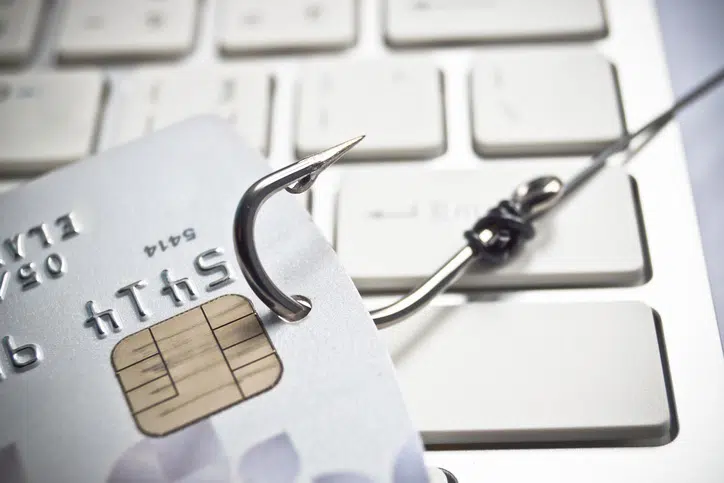The Equifax data breach left many Arizona consumers feeling helpless against hackers and identity thieves. However, even with so much personal information exposed, consumers should still take precautions against scammers – especially on the internet. In recent years, online phishing scams have become a huge problem for internet users in Arizona. Most phishing scams involve cyberthieves luring unsuspecting individuals with false links or fake websites. Then, hackers steal financial information such as credit card numbers and banking information from these victims. Because phishing scams are getting more sophisticated, they are often hard to avoid. However, with the right information, Arizona consumers can learn to spot and avoid phishing traps.
Ways for Arizona Consumers to Spot Common Online Phishing Scams
Exercise extra precaution on social networking sites.
Unfortunately, social media platforms offer a lot of opportunities for hackers running online phishing scams. This is why Arizona consumers should avoid sharing credit card numbers and banking information on sites like Facebook, Twitter, and Instagram. Also, be careful with any link that pops up on a social networking site. Sometimes hackers can even mimic a friend or family member in order to entice you to click something. So, always think twice before clicking anything.
Never trust misspelled domain names.
If you share payment information on a website, always check the URL first. Remember that it is all-too easy to misspell a web address, often, just by getting one letter wrong or out of place. Hackers know this, so they frequently purchase sites with URLs that are very similar to ones used by popular companies. These scammers than make their websites look exactly like the legitimate ones.
For example, an Arizona clothing shopper wants to make a purchase on PantsForLess.com. However, they mistype the URL and end up on the scam site, PantsFarLess.com. Because the website looks like the real deal, they proceed with making a purchase, but end up giving their payment information to hackers instead. Don’t let this happen. Always verify the URL before clicking or sharing anything.
Always expand short links if they seem suspicious in any way.
Before cybercriminals became more sophisticated, internet safety-concerned Arizona consumers could just hover over a URL to verify its legitimacy. Now, though, hackers use special software to conceal or change a website’s actual URL. Try using http://longurl.org/ to expand short links if they seem suspicious. Also, avoid clicking on links sent through unsolicited emails that contain little information about why they were sent.
Use follow-up precautions as an extra layer of protection.
Arizona internet users became savvy to a lot of the tricks previously employed by cyberhackers and online identity thieves. In the past, fake websites and bogus emails looked suspicious, and were often filled with misspellings, grammatical errors, and poor-quality graphics. Unfortunately, this is often not the case anymore. These days, fraudsters are much better at fooling Arizona consumers with professional looking websites and well-written emails. So, even if you are extra cautious, something might slip by you.
For this reason, it is absolutely necessary to check your financial statements as often as possible and monitor your credit reports. Even the FTC recently recommended checking your credit reports at least once every twelve months – and this was before the Equifax data breach of 2017 was revealed.
When you request and look over your credit reports from TransUnion, Equifax, and Experian, you can check for fraudulent items that typically indicate identity theft. At the same time, you will have an opportunity to find and dispute errors on your credit reports that might damage your credit score. Luckily, the Fair and Accurate Credit Transactions Act (FACTA) entitles Arizona consumers to free copies of their credit reports every 12 months. Just visit www.annualcreditreport.com to request copies from all three major credit bureaus.
Then, if you find suspicious items or inaccuracies on any of your credit reports, contact Credit Repair Lawyers of America in Arizona. When you call our firm, an experienced credit attorney will handle the disputing process for you and get you clean credit reports for free.
Neither your bank nor the IRS will contact you via email.
If the bank contacts you, then they will put your name in the email. All other scam emails wills not have your name anywhere in the body of the email. Moreover, the bank will NEVER ask you to give any information back to them via email. Never!
How Arizonians can Get a Free Credit Repair Lawyer
Don’t let fraudulent items or errors on your credit reports bring your credit score down. At Credit Repair Lawyers of America, we’ve been cleaning up credit reports for consumers since 2008 for free. How do we do it? All of our fees come from the defendants in settled cases. This is why our clients pay nothing for the work we do.
Let’s start the conversation about what we can do for your credit. Set up your free consultation today by calling Attorney Gary Nitzkin at (480) 771-6001 or contact us on our contact page.
For more information about Free Credit Repair, please visit https://creditrepairlawyersam.com/arizona/credit-repair/. Or, to learn more about Free Credit Repair After Identity Theft, check out https://creditrepairlawyersam.com/arizona/fix-identity-theft/.

